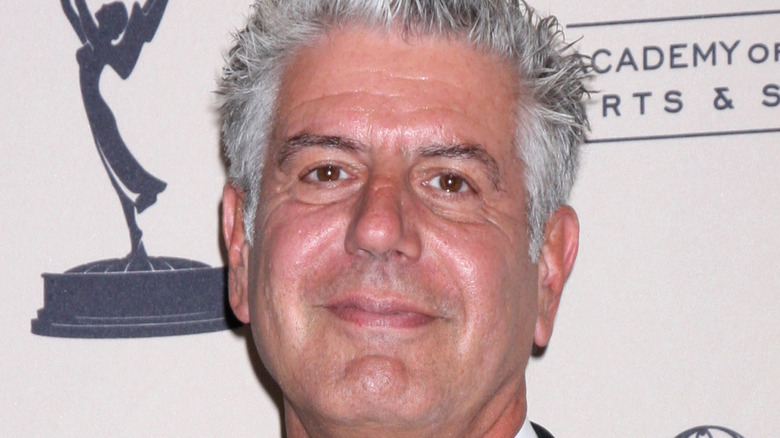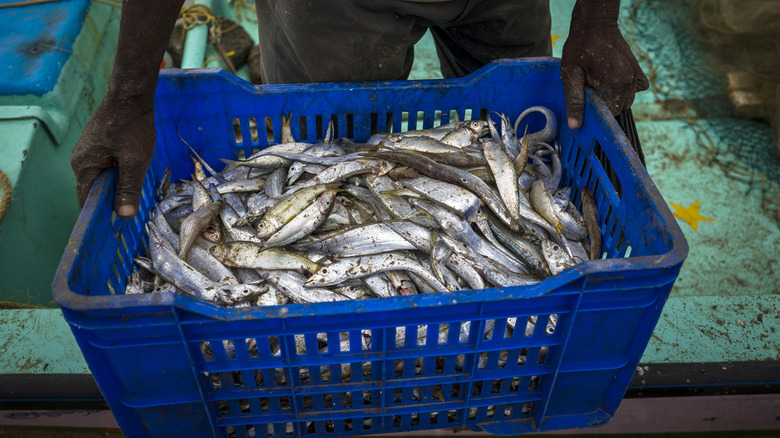Why Anthony Bourdain Said You Can Ignore His Infamous Fish Ordering Tip
In 2016, Anthony Bourdain wanted to say something. "Do me one favor, people," he asked in a video for Business Insider. "Please. Eat the fish on Monday."
This was an update for one of the most infamous sections in The New Yorker article that propelled him from being an executive chef to fame. Namely, he told you not to eat the fish on Mondays. "Many fish purveyors don't deliver on Saturday," Bourdain wrote, "so the chances are that the Monday-night tuna you want has been kicking around in the kitchen since Friday morning, under God knows what conditions." The conditions in question were poor refrigeration, meaning that the days-old fish had aged.
That piece, however, was written in the previous century, specifically in 1999. "Kitchen Confidential" then came out the following year to spread that advice even further. "That was sixteen years ago," Bourdain noted. "It was a very different world." Now standards are higher. For example, sushi had gone mainstream, so people had a better palate for fish. Restaurants that didn't want to lose these customers began to take better care of the fish in turn. However, he still hesitated when it came to endorsing the fake Irish pub's Monday mussels special.
America has a long ambivalence toward seafood
Despite sushi, seafood has never been as pervasive as land meats, at least, according to chef Barton Seaver's book "American Seafood."
Talking to The Splendid Table in 2018, he noted that only about 15 pounds of fish are eaten per person in the country. In 2016, the Asbury Park Press noted that during the heights of seafood's popularity, consumption reached 16.6 pounds in 2004. However, Seaver continued, compare this to the 200 to 225 pounds per person consumed in every other meat category.
A major part of this disparity is caused by the idea that you only eat fish when you have to. Protestant Americans saw Catholics eating fish when they refused themselves meat. "So," Seaver concluded, "there's been this history of seafood being seen as a penance, or something you do for sacrifice." A second part, as he explained to the Smithsonian's Ocean Portal, was that since there was so much seafood to catch, it developed the reputation of being a poor man's feast. In other words, undesirable. This image might have been reinforced by the influx of immigrants who came from seafood-heavy cultures. Obviously, however, things have changed. Anthony Bourdain later championed fish on Mondays because people have developed a greater appreciation.

